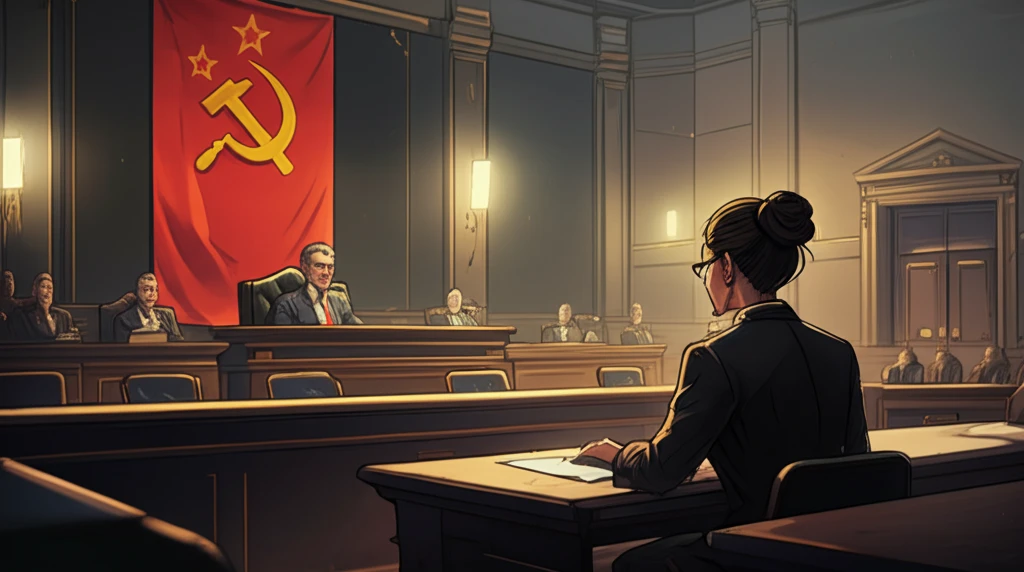
From Revolution to Regulation: How Communism Reshaped Law and Justice
"Explore the surprising and enduring impact of communist ideology on legal systems worldwide, from socialist experiments to modern legacies."
The 20th century witnessed a radical experiment: the attempt to build societies on communist principles. Central to this endeavor was the reshaping of legal systems to align with communist ideology. In the early twentieth century, Russia embarked on one of the most radical legal experiments ever undertaken in a modern state. This article explores how communist ideology, particularly Bolshevik thought, influenced the creation of new socialist legal orders.
At its core, communist legal theory rejected the idea of law as a neutral, timeless entity. Instead, law was seen as a tool of class struggle, designed to facilitate the domination of one class over another. This perspective fundamentally altered the purpose and structure of legal institutions in communist states.
This article examines the interplay between communist ideology and legal practice, tracing the evolution of socialist law from its utopian beginnings to its more pragmatic adaptations. It also considers the legacy of communist legal systems in the post-Soviet era, exploring their enduring impact on contemporary legal cultures.
How Did Communist Ideology Transform Legal Systems?

Marxist legal theory posited that law is not an impartial set of rules but a reflection of economic structures and class conflict. Friedrich Engels, a close associate of Karl Marx, argued that jurists mistakenly believe they operate on abstract principles when they are actually reflecting economic realities. In communist states, law's primary function shifted to serving the interests of the ruling class and advancing the goals of the socialist revolution.
- Utopianism: Early communist thinkers envisioned a future society without the need for law or the state, as class divisions would disappear. This idea influenced initial reforms, such as abolishing pre-revolutionary courts and encouraging judges to rely on "revolutionary legal consciousness."
- Instrumentalism: A more pragmatic approach viewed law as a tool to build new economic institutions and suppress class enemies. Vladimir Lenin, despite his Marxist background, emphasized the use of law to serve the interests of the working class.
What is the Enduring Legacy of Communist Legal Systems?
The collapse of communist states did not erase the influence of their legal systems. In many former communist countries, informal norms and practices from the Soviet era persist, affecting the behavior of justice officials and public attitudes towards law. While some view law instrumentally as a tool for public policy, others see it as a means to resolve disputes. Understanding this legacy is crucial for navigating the legal landscapes of these regions today.
